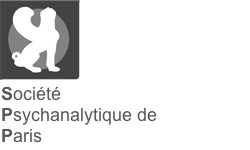|
Résumé :
|
Many situations are now characterized by a breakdown of order and structure, leaving people at the peril of unorganized forces (war machines, human traffickers, etc.) resulting in the dehumanizing of ordinary people on a mass scale, especially in the refugee field. The paper focuses on how alienating discourses on “trauma” and society’s neglect of traumatized people increase suffering and have grave consequences for coming generations. It reflects on how psychoanalysis may represent a mediating function in relation to regressive processes at individual, group and societal levels. A conceptualization of a third position from which psychoanalysis can work is developed. The third position is seen as inevitable in psychoanalytic clinical work in that symbolization and working though must be anchored in a common cultural discourse. A model for rethinking traumatization is proposed that develops the conception of the third position in relation to a broader field and encompasses the subject’s relations to dyadic, bodily-affective relations, to the group and family, and to culture/ discourse. This model may lay the groundwork for understanding how atrocities and social catastrophes such as collective traumatization can be worked through at the individual and social levels. Clinical examples are presented to illuminate these processes.
|




